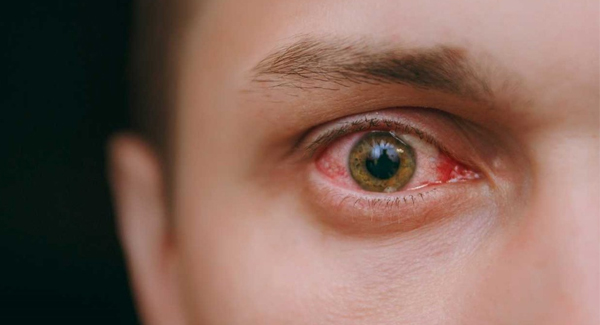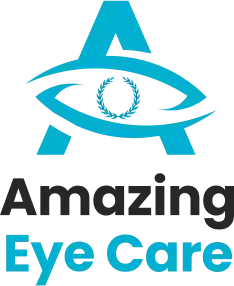
Symptoms vary depending on injury type
- Bleeding or other discharge from or around the eye
- Bruising
- Decreased vision
- Double vision
- Loss of vision, total or partial, in one eye or both
- Pupils of unequal size
- Eye pain
- New or severe headaches
- Itchy eyes
- Redness or bloodshot appearance
- A sensation of something in the eye
- Sensitivity to light
- Stinging or burning in the eye
- One eye is not moving like the other
- One eye is sticking out or bulging
- Nausea or headache occurring with eye pain (this may be a symptom of glaucoma or stroke).
A black eye is typically caused by direct trauma to the eye or face, resulting in a bruise from bleeding under the skin. The area around the eye will change color over time, starting with black and blue and progressing to purple, green, and yellow. Swelling of the eyelid and surrounding tissues may also occur. The abnormal color usually fades within 2 weeks.
An impact to the eye can potentially cause damage to the inside of the eye. Trauma is also a common cause of hyphemia, which is bleeding inside the front of the eye and often occurs from a direct hit by a ball. Additionally, certain types of skull fractures can cause bruising around the eyes, even without direct injury to the eye.
A chemical injury to the eye can occur from work-related accidents or exposure to common household products such as cleaning solutions, garden chemicals, solvents, or other types of chemicals. Fumes and aerosols can also cause chemical burns. Acid burns on the cornea often clear up and have a good chance of recovery. However, alkaline substances like lime, lye, drain cleaners, and sodium hydroxide found in refrigeration equipment can cause permanent damage to the cornea. It is important to flush the eye with large amounts of clean water or salt water (saline).
Photic retinopathy, also known as foveomacular retinitis or solar retinopathy, is damage to the retina, particularly the macula, from prolonged exposure to solar radiation or other bright light sources like lasers or arc welders. This condition usually occurs from staring at the sun, watching a solar eclipse, or viewing ultraviolet, Illuminant D65, or other bright lights. Immediate evaluation by a doctor is recommended.
If you experience an eye injury, cut, or trauma, gently apply a clean cold compress to the eye to reduce swelling and help stop bleeding. However, do not apply pressure to control bleeding. If blood is pooling in the eye, cover both eyes with a clean cloth or sterile dressing and contact your doctor immediately.
In case of eye injury be sure NOT to:
- Do not rub or apply pressure to your eye.
- Refrain from attempting to remove any foreign objects lodged in your eye.
- Avoid using tweezers or any other tools in your eye. However, you may use cotton swabs on the eyelid.
- Do not apply medications or ointments directly into your eye.
Preventing Eye Injuries
Eye injuries can occur in various settings, ranging from high-risk activities to unexpected places. Taking preventive measures can help reduce the risk of such injuries. These measures include wearing protective eyewear while using power tools or participating in high-risk sports, carefully following instructions when handling chemicals or cleaning supplies, keeping sharp instruments like scissors and knives out of reach of young children, and maintaining a safe distance from amateur fireworks.
In case of an eye injury, seeking immediate medical evaluation is crucial to minimize the chances of permanent eye damage.

